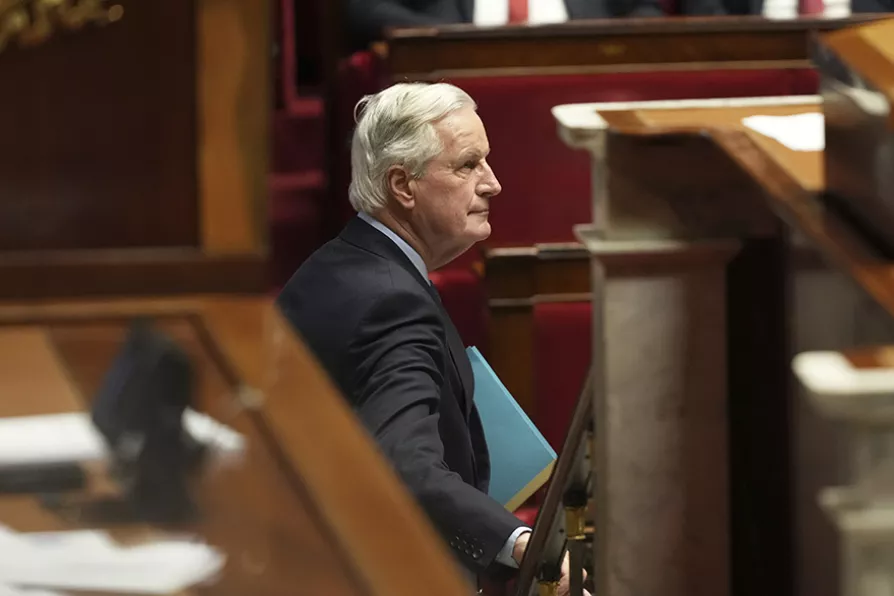Does widespread and uncontrolled use of AI change our relationship with scientific meaning? Or with each other? ask ROX MIDDLETON, LIAM SHAW and MIRIAM GAUNTLETT
French crisis: Macron’s desperate power play backfires spectacularly
As heavy industry flees and public-sector strikes paralyse the nation, the French leader’s increasingly desperate attempts to rule without a majority reveal the deep crisis at the heart of European liberal democracy, writes KEVIN OVENDEN

 BY POPULAR DEMAND: Michel Barnier leaves
BY POPULAR DEMAND: Michel Barnier leaves
“ARROGANCE made flesh.” Left-wing lawmaker Clemence Guette’s reaction to President Emmanuel Macron’s emergency address to the French nation on Thursday spoke for most of the country.
France this week is plunged into a deeper phase of ongoing, almost existential crisis. To listen to Macron, it is everyone’s fault but his own.
“I won’t shoulder other people’s irresponsibility,” snapped the popinjay whose own authoritarian recklessness has concentrated social and political tensions into the fall of his government, inability to pass a Budget, threatened financial meltdown and a sense of national calamity.
Similar stories

The desperate French president keeps running up the same political cul-de-sac. DENNIS BROE offers an explanation













